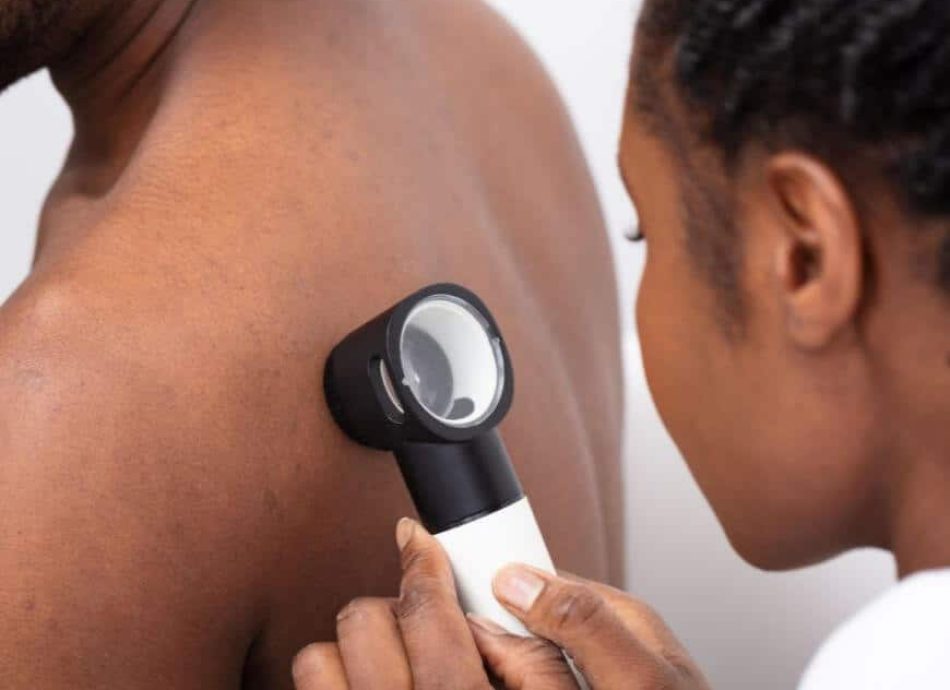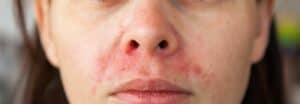Award winning dermatology service, with over 20 years of experience
Short waiting lists, on some occasions offering same week appointments
Safe environment, in Care Quality Commission approved facilities
Conditions:
SKIN PATCH TESTING IN SHREWSBURY, SHROPSHIRE
At St. Michael’s Clinic, our patch testing facility is a specialist unit designed to determine if your skin disease is caused by an allergic contact reaction. In addition to patch testing, we offer a comprehensive range of blood allergy tests to identify any allergic components contributing to your skin condition.
Our patch testing service is managed by a team of highly qualified dermatology specialist nurses and physician assistants, all with extensive experience in providing patch tests. We welcome any patient referred by a UK-registered consultant dermatologist. If you have not seen a dermatologist but are concerned about a contact allergy, please book an appointment with one of our consultants. We can then facilitate your testing, investigation and treatment.
It is important to note that there is currently no other test on the market, aside from a patch test, that can identify a contact allergy. While blood tests are available for allergies, they are typically used to identify inhaled, airborne or ingested allergens, not contact allergens.
UNDERSTANDING ALLERGY PATCH TESTING
Allergy patch testing is a process used to pinpoint substances that could be the root cause or the exacerbating factor to your skin rash.
The procedure of allergy patch testing comprises the application of sticky patches on your back, or occasionally on non-affected areas such as arms or legs. Each patch carries tiny compartments filled with ordinary household chemicals, kept in direct contact with your skin. This encompasses things like fragrances, colouring, preservatives seen in creams, hair dye, metals and so forth – all non-toxic everyday chemicals. A single patch test can screen for anywhere between 20 and 70 allergens.
The complete testing process necessitates three clinic visits spread over five to six days: The patches are fixed and the areas are outlined with ink. After 48 hours, the patches are taken off, readings are recorded and the areas are inked again. 48 to 72 hours later, the final readings are conducted.
YOUR INITIAL PATCH TEST APPOINTMENT
Ensure that your back is spotless, devoid of hair, and has no moisturisers applied on it.
The patches will be affixed onto your upper back, or perhaps arms or thighs, in the guise of small disks on hypoallergenic adhesive. Your skin will be marked with ink. The patches need to stay intact for a duration of 48 hours. If any patch loosens, kindly secure it back with tape. Experiencing itchiness at the patch test sites is usual and you might feel your back motion a bit constrained. If an allergy to any of the substances exists, it will be visible on your back, even if the rash occurs on a different body part. Once the patches have been placed, it’s imperative to keep your back dry from water and sweat until your concluding appointment.
YOUR FOLLOW-UP PATCH TEST APPOINTMENT
YOUR THIRD PATCH TEST APPOINTMENT
FREQUENTLY ASKED QUESTIONS
WHAT ALLERGENS ARE TESTED IN PATCH TESTS?
IS IT SAFE TO SHOWER AFTER HAVING PATCH TEST?
ARE THERE ANY SIDE EFFECTS OF PATCH TESTING?
REQUEST A CALL BACK
Please fill in this form and one of our team will give you a call back to arrange a consultation with one of our expert dermatologists.

HEAR FROM OUR PATIENTS
WHY GET PATCH TESTING FOR ALLERGIES DONE AT ST. MICHAEL'S CLINIC?
Here at St. Michael’s Clinic, Shrewsbury’s leading private skin and laser treatment clinic, our experts are specialists in all aspects of dermatology, skin cancer, anti-ageing and beauty treatments. We offer NHS patients consultant-led dermatology services in Shrewsbury.
St. Michael’s Clinic is regulated by the Care Quality Commission, ensuring the best level of treatment is provided to you in a safe environment. We are part of the Dermatology Partnership, a leading group of dermatology clinics, defined by clinical excellence and focusing on leading dermatological care.
INSIGHTS AND ADVICE

Your Guide to Autumn Skincare
With the weather gradually cooling and leaves taking on their autumnal palette, it’s also a gentle reminder that winter is on its way. Maintaining a vibrant and healthy skin during the transition from summer to cooler days can be challenging. Fear not – this comprehensive

The Definitive Guide to Eczema
Eczema Awareness Month in October is a global initiative spotlighting those who suffer from this demanding skin ailment. Our perpetual aim is to arm you with a well-rounded understanding of eczema‘s core causes, differing treatments and beneficial coping mechanisms. This all-inclusive guide offers penetrating insights

Exploring Varicose Veins: Recognising, Managing and Preventing
Varicose Disease Awareness Month is focused on raising awareness about varicose veins, a common but frequently overlooked condition affecting millions globally. Throughout September, our goal is to emphasise the importance of early detection, explore the causes, treatment options and highlight lifestyle changes that can help




